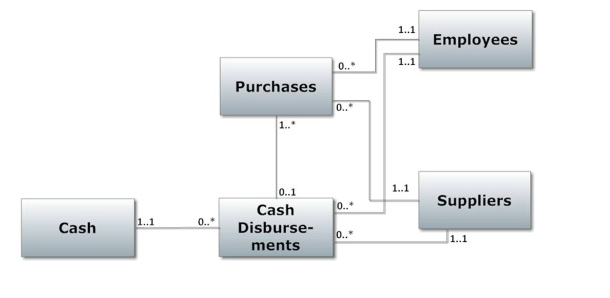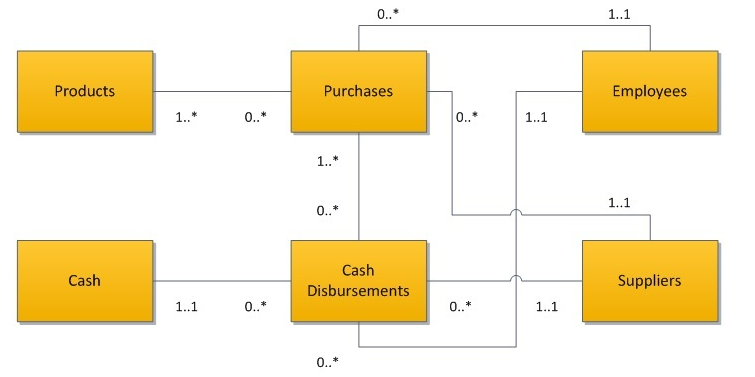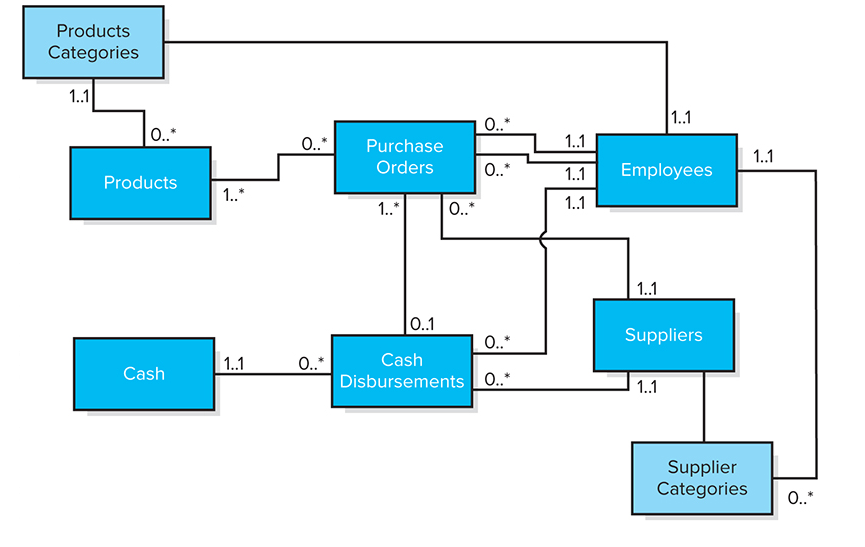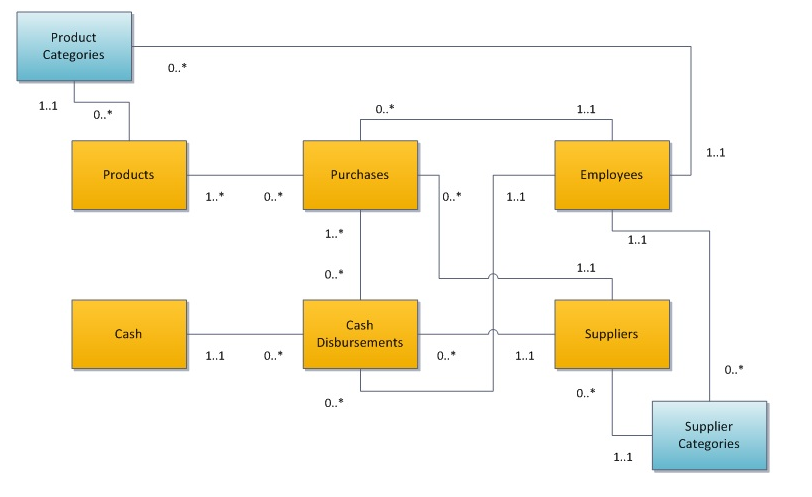Navigation » List of Schools, Subjects, and Courses » Accounting 230 – Accounting Information Systems » Assessments » Chapter 6 Assessment
With Answers Good news! We are showing you only an excerpt of our suggested answer to this question. Should you need our help in customizing an answer to this question, feel free to send us an email at  or chat with our customer service representative.
or chat with our customer service representative.
Chapter 6 Assessment
Chapter 6 Assessment
1. Which of the following general ledger accounts would likely not be impacted in a purchases and payments process?
Inventory.
Purchase Discounts.
Cash.
Accounts Receivable.
2. Many companies record both purchase orders and purchases; when would such a company recognize in the financial statements the purchase?
When the products are received from the supplier and accepted.
When the supplier receives the purchase order.
When the purchase order is issued.
When the products are sold.
3. In a BPMN collaboration model of the purchase process, one pool describes the focal organization’s activities and the other pool describes what?
The message flows between the pools
The supplier’s activities
The sequence of steps in the process
The customer’s activities
4. Which of the following is the most likely order of a basic purchases activity model?
Analyze Inventory→Place Purchase Order→Send Payment.
Request prices and availability→Receive Items→Record Accounts Payable.
Create Purchase Order→Create Journal Entry→Receive Items→Send Payment.
Request prices and availability→Place Purchase Order→Receive Items→Send Payment.
5. In a BPMN collaboration model of the purchase process, which of the following best describes the purpose of swimlanes?
Clarifying the interaction between pools
Showing different jobs in the purchase process
Capturing the process complexity
Showing the sequence of activities in a pool
6. In a BPMN activity diagram, which of the following represent a valid use for an intermediate timer event?
Indicates a delay to a specific date/time
All of these choices are correct
Indicates a delay to a relative date, such as next Thursday
Represent a time delay
7. When documenting a purchases and payments business process, which of the following BPMN activity diagram symbols should be used to indicate that accounts payable waits until the end of the month to pay vendors?
Collapsed subprocess.
Pause activity.
Intermediate timer event.
Delay mode gateway.
8. In a BPMN collaboration model of the purchase process, which of the following is the appropriate term for the message flows between pools?
Intermediate events
Collaboration
Choreography
Orchestration
9. A well controlled purchases and payments process would likely have which of the following roles seperated into swimlanes?
Accounts Payable, Receiving & Buyer.
Accounts Payable, Receiving & Shipping.
Supplier, Receiving & Buyer.
Supplier, Accounts Payable & Receiving.
10. Which of the following is not an application control when placing a purchase order?
System provided type image.
System provided default values.
System provided range and limit checks.
System provided purchase order number.
11. Which of the following least reflects the purpose of a business rule in the purchase process?
Require segregation of order, receiving, and payment duties
Ensure suppliers are paid on time
Ensure suppliers are satisfied
Ensure an audit trail
12. Which of the following is not a desired access control when developing a purchases and payments business process?
The person receiving the order must not see the original purchase order quantities.
The person paying the supplier must not be able to modify the purchase order.
The person placing the purchase order must not receive the items.
The person returning items to the supplier must not view the original purchase order.
13. Review the following diagram. Which answer provides the best interpretation of the multiplicities for the association between the Purchases and Cash Disbursements classes?

Each check written to the supplier is for one specific purchase
Each supplier must be paid for the purchases from that supplier
One purchase can result in multiple payments to the supplier
Disbursements are made after the purchases are recorded
14. Which of the following best describes a type image?
A BPMN activity that allows a business process to branch based on type.
A description attached to a UML association when there are multiple associations between classes.
A description attached to a BPMN gateway that clarifies the nature of the gateway.
A UML class added to collect management information, such as category.
15. In the following diagram, which of the following provides the best interpretation of the multiplicities for the association between the cash disbursements and employees classes?

An employee can make a maximum of one cash disbursement.
Each cash disbursement must be made by one employee.
A cash disbursement can be made by a combination of several employees.
A cash disbursement must be made by the employee who made the purchase.
16. Review the following diagram. Which answer provides the best interpretation of the multiplicities for the association between the Sunset Partners and Supplier Categories classes?

Each partner can be assigned to manage many supplier categories
Each supplier category is managed by several partners
Each partner can only purchase products from one supplier category
Each supplier is linked to one partner
17. The following diagram would result in a database with how many tables?

6.
12.
10.
8.
18. Review the following diagram. Which answer provides the best interpretation of the multiplicities for the association between the Purchases and Products classes?
Each purchase order specifies many products
Each purchase is for one product
Each purchase can include many products
Checks are written after products are added to inventory
19 Which of the following would likely be a foreign key in a purchases table?
rev: 10_18_2020_QC_CS-236338
Supplier_Number.
Product_Description.
Purchase_Order_Date.
Purchase_Order_Number.
20. Which of the following would likely be a primary key in a purchases table?
Supplier_Number.
Product_Description.
Purchase_Order_Number.
Purchase_Order_Date.

